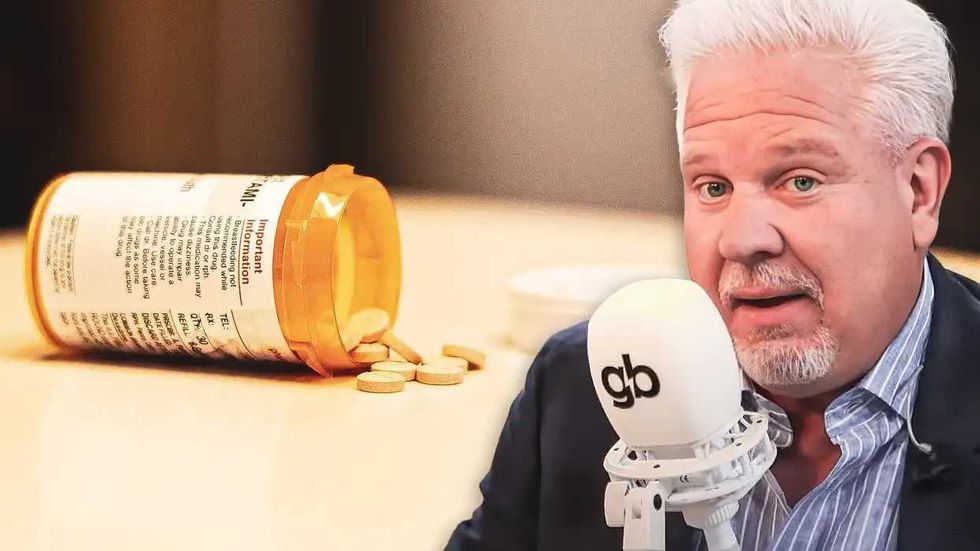
Alfred Gescheidt/Getty Images

Since when did popping a pill become a substitute for changing your life?
Everybody has a diagnosis these days.
Not just adults — kids too. It doesn’t matter if you're 8 or 38, there's someone somewhere waiting to explain away whatever is different about you.
Perhaps you find your work excruciatingly boring and hard to care about precisely because it is excruciatingly boring and hard to care about.
It's not a quirk of your personality or a flaw in your character or a wound in your soul. It's an illness. Never mind that the symptoms are vague or the evidence that it's a discrete medical condition are lacking — a pharmaceutical cure will fix it.
Just pop this pill, and you will be like everyone else. Isn’t that what you want?
All the kids these days have ADHD or autism. Which often makes me wonder if any of them do. Or if these conditions exist at all.
Autism certainly seems real in its extreme forms, but I am not at all convinced that it's at the far end of a continuum. I don’t really think being a little “on the spectrum” is a thing. Those people are just a little weird and need stronger guidance on how to get on in life.
I have a friend who was an engineer at Google. He told me half the people he worked with claimed to be “on the spectrum,” and according to him, it was all bull. They didn’t have medical problems; they had personal problems. They were guys who never learned how to interact normally, so they just ended up being kind of weird and rude.
As for ADHD, it's so obscenely overdiagnosed that it's essentially fake at this point. The market has been so oversaturated by ridiculous and erroneous diagnoses that whenever I hear about another kid with ADHD, it tells me more about the doctors and the “system” and less about the kid.
Are some kids better at sitting down at a desk for three hours at a time? Sure. Are more girls than boys better at doing it? Yes. Is there a gender factor here when it comes to diagnosis? Absolutely.
Boys don’t learn the same way girls do. But much of modern education ignores this fact. So when boys fidget or get bored, it gets chalked up to ADHD. This is more or less common knowledge by now. So the only thing a boy being diagnosed with ADHD tells me is that he doesn't get enough recess.
Of course, there are extreme cases. There are kids who genuinely don’t seem to be able to focus at all. Something like actual ADHD exists in a small number of boys, but that doesn't negate the broader truth: Instead of seeing people as individuals with different strengths and weaknesses, we decide to overmedicate when someone isn’t exactly like everyone else.
My mom worked with special ed kids. Some of them had mild disabilities, some more extreme. In some cases, it was clear they would need supervised care for their entire lives. But in other cases, it wasn't clear just what, if anything, was wrong — besides a certain learned helplessness reinforced by doctors and parents.
Nowadays ADHD diagnoses aren’t just for kids; adults are getting in on it too. Believe it or not, an increasing number of men and women, especially women, in their 30s and 40s are discovering that they too have ADHD — a discovery that inevitably “explains everything.” My wife sees reels on Instagram all the time, along with ads selling various solutions.
What's that? You couldn’t focus at your computer, clicking on an Excel spreadsheet, sending pointless emails for seven hours at a time? Shocking. No, you don’t need ADHD medication. You need to do something else with your life. Perhaps you find your work excruciatingly boring and hard to care about precisely because it is excruciatingly boring and hard to care about.
Overmedicalization and overdiagnosis are a deep problem in our society. Not just because the result is an increase in prescription drug use, but because the individual human being is lost or suffocated a little bit at a time. Everyone is different. Everyone has skills, and everyone has weaknesses. Everyone learns in a different way, and everyone focuses on different things too.
RELATED: Drugged for being boys: The TRUTH behind the ADHD scam

Some people are just a little awkward, a little weird, a little absent-minded, or a little dry. Sure, they should try to meet society halfway in some reasonable sense — but that happens through early teaching, parental guidance, community expectations, and personal effort, not through a pill you pop every day. For most of the 20th century, we relied far more on those nonmedical supports.
All the pill-popping flattens our individualism and undercuts our own agency as humans. It presupposes that one cannot make oneself better, one cannot work to act right, and that one doesn’t have any control. This is a lie. Yes, of course, there are people who suffer with truly debilitating problems who need medication, and they should get that medication. But it is a small fraction of the population. Most people can make themselves better when they set their minds to it.
Don’t get me wrong. I'm not anti-psychiatry. I'm not into alternative medicine or any of the hippie stuff. I’m not denying that there are people with problems who are helped most effectively with medication. I’m thankful for the blessings of modern medicine and the advancements we continue to see every year.
But we have a problem with overdiagnosis in our country. We have a problem with losing sight of the individual. We have a problem with people who want to give up their agency and turn it all over to a pill, and we are worse off because of it.
O.W. Root